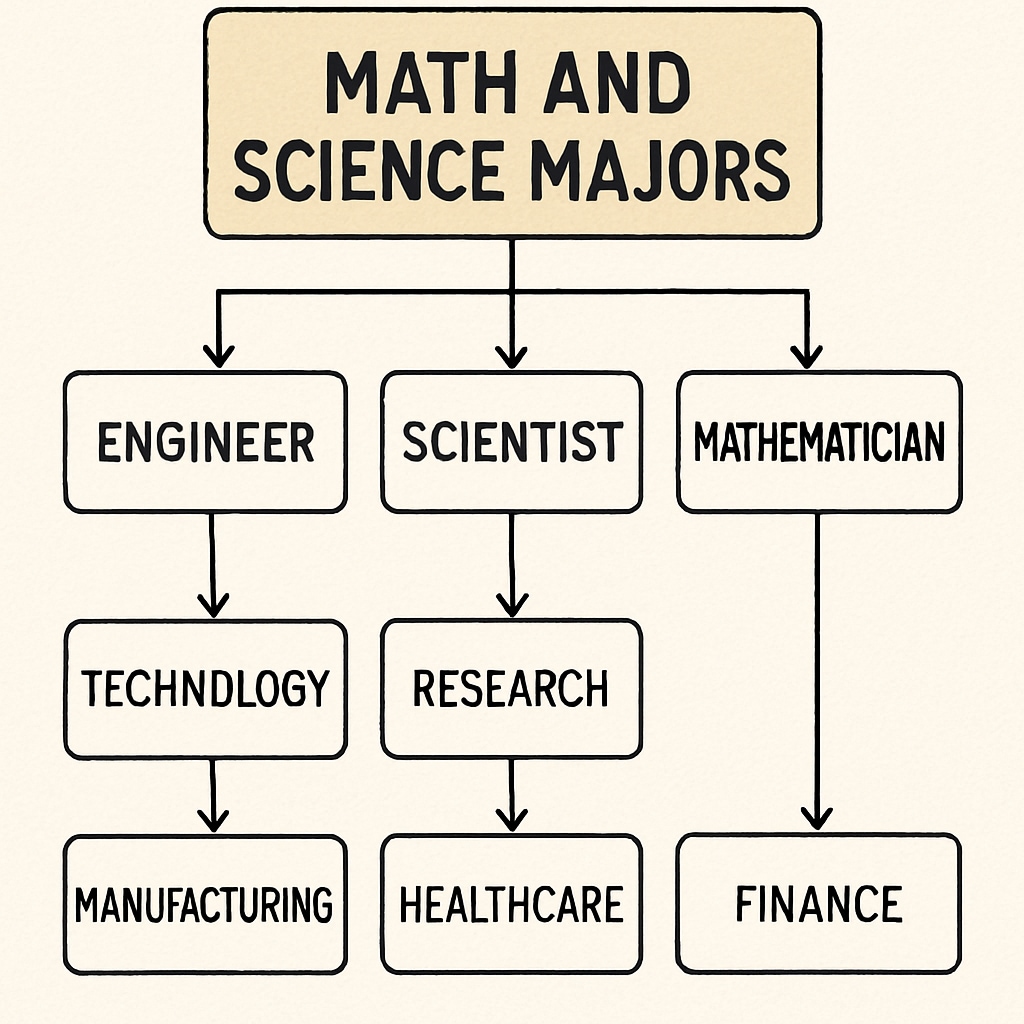For 16-year-old high school students passionate about math and science, choosing a university major can feel like standing at a crossroads. The decision is not only about academic interests but also about aligning those interests with career aspirations and personal strengths. This article explores the challenges faced by math and science enthusiasts in the university application process and offers a structured approach to making informed decisions.

Understanding the Importance of Self-Reflection
Before diving into specific majors, it’s crucial to take a step back and reflect. Self-reflection helps students understand their core interests, strengths, and long-term goals. Here are a few guiding questions:
- What excites you most about math and science? Is it problem-solving, theoretical concepts, or real-world applications?
- What are your natural strengths? Do you excel in abstract thinking, analytical reasoning, or hands-on experimentation?
- What type of work environment do you envision for yourself? Collaborative teams in the lab, independent research, or corporate settings?
By answering these questions, students can begin to narrow their focus. For example, someone drawn to theoretical concepts might consider pure mathematics or physics, while those interested in applications might lean toward engineering or computer science.
Exploring the Spectrum of Math and Science Majors
The range of math and science-based majors is vast, and each offers unique career pathways. Below are some popular options:
- Pure Mathematics: Ideal for those who enjoy abstract thinking and problem-solving. Careers often include academia, finance, or data science.
- Physics: A versatile major that combines theory and experimentation. Graduates can work in research, engineering, or even software development.
- Engineering: Perfect for students interested in applying scientific principles to solve real-world problems. Fields include mechanical, electrical, civil, and aerospace engineering.
- Computer Science: A rapidly growing field that combines logic and creativity. Career options range from software development to artificial intelligence (AI).
- Biology or Chemistry: These majors are great for those interested in life sciences, medicine, or pharmaceuticals.
Each major opens doors to diverse opportunities, but it’s essential to research the curriculum and career outcomes to ensure alignment with personal interests.

Seeking Guidance and Resources
Making such a significant decision shouldn’t be done in isolation. Students should leverage the resources available to them, including:
- School Counselors: Counselors can provide insights into university programs and help students evaluate their options.
- Mentors and Teachers: Math and science teachers can offer advice based on their own experiences and knowledge of the field.
- Online Tools: Websites like Britannica and Wikipedia contain detailed information about various majors and their career prospects.
- University Open Days: Attending open days allows students to explore campuses, meet faculty, and understand program specifics.
In addition, connecting with alumni or professionals in the field can provide real-world insights into the day-to-day work involved in specific careers.
Balancing Passion with Practicality
While it’s essential to follow your passion, practicality should also play a role in the decision-making process. Here are some factors to consider:
- Job Market Trends: Research industries with high demand for graduates in your chosen field.
- Further Education Requirements: Some careers, such as medicine or academia, may require advanced degrees.
- Transferable Skills: Certain majors, like math and computer science, develop skills applicable to a wide range of industries.
By balancing passion with pragmatism, students can select a major that not only excites them but also sets them up for future success.
Final Thoughts
Choosing a university major is a pivotal moment in a student’s academic journey. For math and science enthusiasts, the options are abundant but require careful consideration. By reflecting on their interests, exploring available majors, seeking guidance, and balancing passion with practicality, students can make an informed decision that aligns with their goals and aspirations. Remember, this is just the beginning of a lifelong learning journey—choose a path that excites and motivates you to grow.
For more information on potential majors and career paths, visit trusted resources like the Education page on Wikipedia.
Readability guidance: The article uses concise paragraphs, lists for clarity, and transitional words to ensure a smooth reading experience. Passive voice and long sentences were minimized to enhance engagement.


